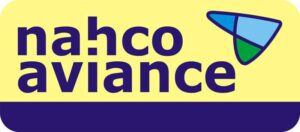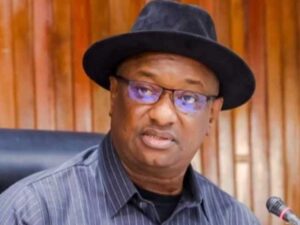98% of flight delays, cancellations due to deficit infrastructure, VIP movement, others — Chairman, United Nigeria
The Chairman of United Nigeria, Prof. Obiora Okonwo, has said that only two percent of flight delays and cancellations are attributed to airline operators.
He said that the remaining 98 percent are due to weather, poor and inadequate infrastructure and VIP movement across the country.
Speaking with aviation journalists in Lagos on Thursday where the airline was awarded a certificate of the International Air Transport Association (IATA) membership, Okonkwo regretted that the airlines are unnecessarily castigated for flight delays and cancellations.
According to him, the poor infrastructure across the over 30 airports in the country, weather and VIP movement, among others are responsible for 98 per cent of the delays and cancellations in the industry.
He explained that no airline would willingly delay and cancel flights, stressing that the equipment is most useful when deployed to service.
He decried that most aircraft in the country are under-utilised to the disadvantage of the operators.
According to him, aircraft are manufactured to remain in the air for 18 hours daily but said most airplanes operated domestically, only fly between seven to eight hours daily.
He explained that the average aircraft utilisation monthly in Nigeria is between 200 to 250 hours, while such equipment is maximally used at 2,000 to 3,000 hours monthly in developed aviation countries.
He said, “The problem of delays is due to weather and you can’t land at the airport because the Instrument Landing System (ILS) is not calibrated for the necessary equipment and they are not available.
“There is nothing you can do. We think that as soon as all the relevant bodies are able to provide the necessary infrastructure and create the right environment, this problem will solve itself.
“Only 2 and 3 percent of delay factors could be attributed to the operators because every aircraft owner knows that you only make money when your aircraft is flying. Aircraft on the ground, whether you fly or not, incur expenses and when the time comes for the maintenance to be made and the lease to be made, nobody asks you whether you fly or not.
“So, it pays us to fly and the only time airlines make money is when they sell the ticket. And they don’t make money when the ticket is sold, but when the ticket is used, because when people come for a refund, you don’t make money from that.
“So, we are the number one beneficiary if aircraft leave timely and the customers get to their destinations and we know that from practical experience, the solution is not from the number of aircraft.”
On the minimum of six aircraft for operators, Okonwko described the policy as unnecessary.
Okonkwo explained that the business model of individual airlines should determine the number of aircraft they want to have in their fleet.
For instance, he explained that some leading airlines in the world today like Emirates, Ethiopian Airlines and others started with just two aircraft, but grew gradually to hundreds of aircraft in their fleets.
Okonkwo insisted that the NCAA should be more concerned about the safety and the infrastructure deficit in most of the airports, insisting that the number of airplanes does not prevent delays and flight cancellations.
He, however, lauded the NCAA for effective safety oversight functions in the industry, saying that this had further enhanced safety in the sector.
He explained that the minimum of three aircraft for startup operators as required by the NCAA was good for the industry.




